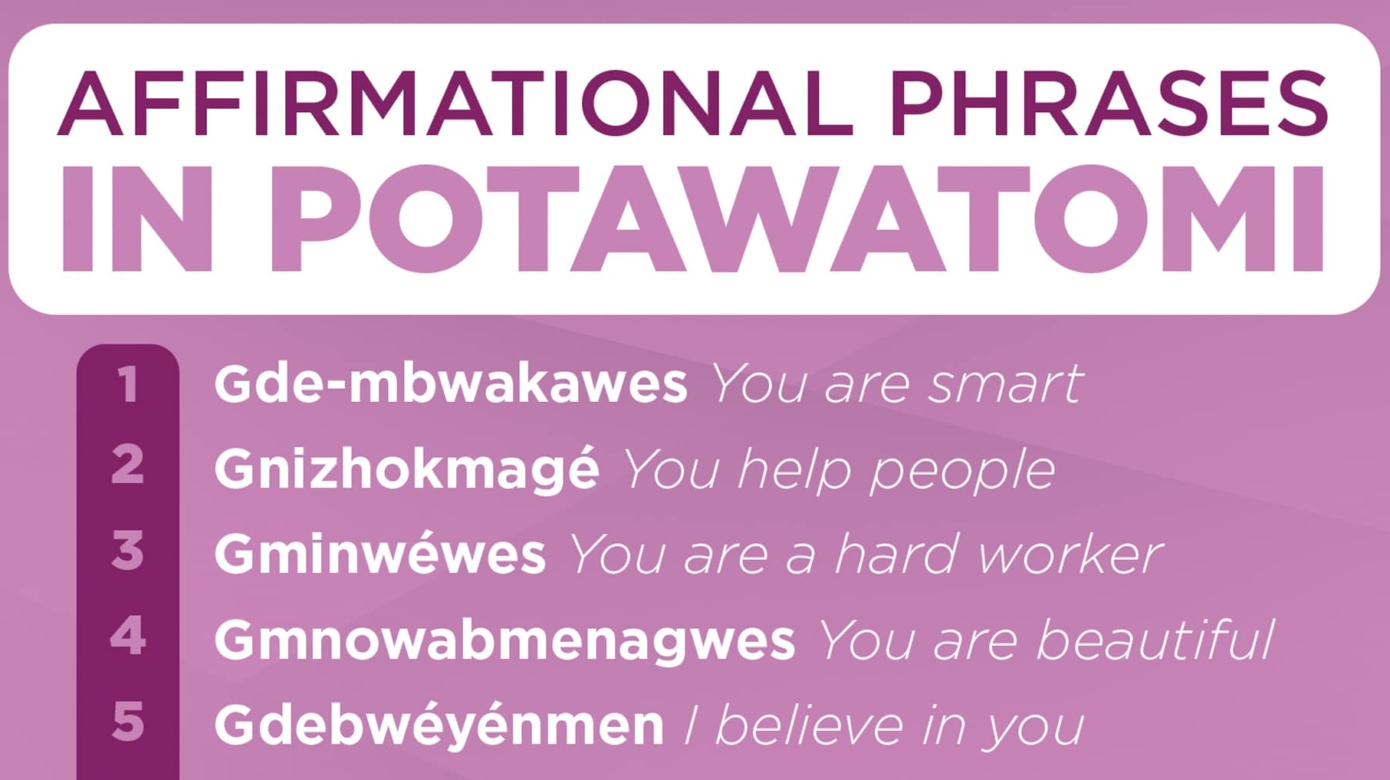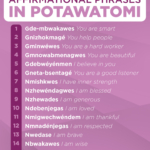As a licensed professional counselor, Rickey Whisenhunt works with Citizen Potawatomi Nation Behavioral Health patients on their self-care and affirmations as tools to improve their mental health. He encourages people to spend time on themselves, and Self-Care Awareness Month in September is an excellent time to create new habits.
“We don’t stop for self-care enough. We care for others but not ourselves,” Whisenhunt said.
He has seen individual expectations increase throughout his 15-year career. Patients regularly tell him of troubles sleeping, show him schedules that fill every hour and express overwhelming pressure. Whisenhunt believes at those times, self-care becomes even more essential.
“You’re not turning all the lights off, getting all the electronics turned off and relaxing your body at an appropriate time. Sometimes we do adjustments in schedules in counseling to begin our treatment … to get our sleep in and get healthier habits so self-care is implemented,” he said.
He presents many ways to help calm the body and mind, such as repeating an affirmational phrase to limit stimulation from the outside world.
Positively Potawatomi
CPN Department of Language Director Justin Neely worked with the Empowered Youth Development Initiatives to develop a list of encouraging words. He translated positive phrases from Ojibwe to Potawatomi to reflect both cultures.
“We’re a very positive people,” he said. “We definitely believe that good things happen in the way that we live our lives. I think that is even exhibited when we put down tobacco and we thank that plant, or we thank that animal for giving its life so that we can live. We’re a very thankful people, and at the same time, we’re a very caring and compassionate people to one another.”
Phrases such as Gmnowabmenagwes (You are beautiful) and Nzhewéndagwes (I am blessed) offer ways to connect with traditions through self-care. Expressing thankfulness helps exude positivity as well.
“We can use affirmations for every problem — when something’s going wrong. We can use affirmations for a situation when we’re in trouble, when we’re needing a pep talk. We use affirmations when we’re getting ready for a battle, for sports,” Whisenhunt said.
Writing affirmations
In an article for Psychology Today, Kathryn J Lively, Ph.D., outlines some soft rules for developing affirmational phrases. She recommends writing them in the present and the first person with both a positive and emotional charge.
“Write your affirmations as if they are already happening,” she wrote. “This means affirming, ‘I am happy and confident,’ instead of ‘Two months from now, I will be happy and confident.’”
For example, Potawatomi phrases such as Nmishkwes (I have inner strength) or Gminwéwes (You are a hard worker) serve all these functions.
A study published in a peer-reviewed medical journal PLOS highlighted a study showing the more practical effects of affirmation.
“The present study provides the first evidence that self-affirmation can protect against the deleterious effects of stress on problem-solving performance,” researchers said. “Specifically, we show that chronically stressed individuals have impaired problem-solving performance and that self-affirmation can boost problem-solving performance under pressure.”
Whisenhunt’s tips
Whisenhunt often helps patients develop self-care routines or return to old ones. He has found it easier to stick to something with an outcome.
“We sometimes need to have specific goals about self-care. Some of us don’t put specific goals to those. And it may be about taking care of one specific thing,” such as getting a manicure or decorating a reading nook, Whisenhunt said.
The imagination provides an untapped source of relaxation for many people. He encourages clients to take vacations; however, imagining one sometimes works as well.
“Just planning a vacation and kind of living a vacation, even in our minds, is very therapeutic because it’s a visualization of something that’s very relaxing, and you kind of plan it out and maybe kind of live it,” Whisenhunt said. “And it’s very calming to kind of go through the whole process and then maybe kind of experience it. And it kind of takes your blood pressure down and kind of gives you just a little experience.”
Some patients feel they waste their time with self-care, and overcoming that way of thinking presents an obstacle. Whisenhunt recommends starting small.
“Try it twice a week to start out with, then move up to three, maybe even four days a week. Do it at your pace. Do it slowly. Move up if you can. I know you’re hard-working. You’ve got kids. It’s a challenge, but it’s very important. … Make it a priority,” he said.
Find out more about Citizen Potawatomi Nation’s Behavioral Health services at cpn.news/CPNBH.


